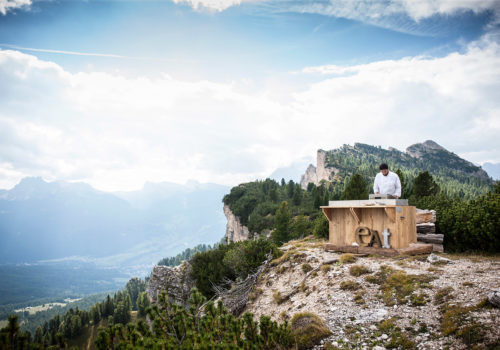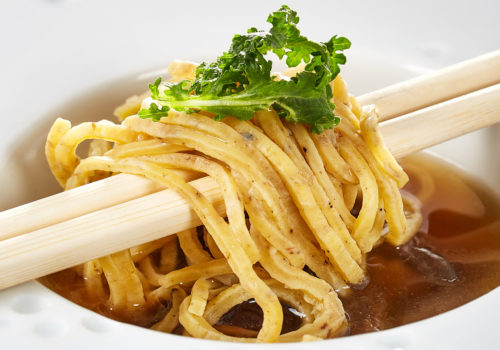The project by Supervoid Architects looked to enhance the structures with contemporary flair
The country in the city. These few words synthesize the essence of Borgo della mistica, a place that speaks of green spaces and sustainability within Rome, yet still in the country. There is no need to go across the GRA ring road to plunge into a bucolic environment far from traffic, because the Mistica estate, where important archaeological excavations were conducted during the nineteenth century, is located right beside the Aqua Alexandrina aqueduct.
Purchased in the 1930s by the Federici family, the area has long hosted a farm dedicated to animal husbandry, a point of arrival for transhumance. Since 2006 it has been the object of an urban transformation project that provided a home base for various social entities such as the Cooperativa sociale agricoltura Capodarco and the Associazione volontari capitano Ultimo onlus. In 2022 came another change: the complex now features a new configuration, thanks to Borgo della Mistica, to its restaurant and bio-swimming pool open to the public.
This is a new entrepreneurial challenge undertaken by the Federici family, which has sought to revolutionize this area with a focus on fine food, wellness and the enhancement of leisure. The Borgo is located around the estate’s vegetable and learning gardens, the products of which are sold directly or processed. The goal of the project is to «support a local economy that will include the agricultural and food products of the territory – from the producer to the consumer – and to protect sustainability and work to advance good eating habits», explains Fortunato Federici, responsible for coordinating the initiative.
The establishment was founded as part of an effort to requalify the estate’s farmhouses to create a destination with a variety of green spaces and services for young people and families.
The architectural design was entrusted to Supervoid Architects, who renovated the buildings in a contemporary style. The colour red, typical of roadmen’s houses, is the star of the complex, and appears in many of the materials of which it is built.
In the kitchen is Ornella De Felice, whom we recently met beside Barbara Agosti at the Ristorante Altrove, and at Coromandel, both in Rome. «I was convinced by the idea of having to build so much from nothing, and being able to make it my own – explained the chef. To enhance the element of the landscape in the menu, which doesn’t mean merely simple cuisine, but a complete welcome, from every point of view, for an experience that is nevertheless near the city: that is my goal.»
Her cuisine may be defined as practical, organic and sustainable, supported by the collaboration of local businesses, to create a network and enhance the context. Some of the more outstanding dishes she proposes are the “Arianna Vulpiani” poached egg with seasonal vegetable vignaiola, pecorino cheese wafer and toasted croutons, the Cacio pepe-filled ravioli with asparagus, duck speck, cream of pecorino cheese and marjoram, the Scottona beef steak with sweet-and-sour shallots, mustard, marinated yolk, home-made anchovy-flavoured mayonnaise and caper powder. The menu also includes vegan dishes, such as Marinated beetroot carpaccio with raspberry vinegar, white melon, fresh almond cheese, black cabbage chips, and the Chickpea panella with hummus, crispy vegetables, sesame seeds, and vegan turmeric mayonnaise.
And if it’s pizza you feel like, maybe even with Slow Food-certified ingredients, the building also houses the Frumento pizzeria where you can savour, for example, the Ventricina (mozzarella, ventricina from Vasto, ‘Nduia sausage from Spilinga and shredded chili pepper), or the Guanciapiena (mozzarella, yellow potatoes, pork jowl, Roman DOP pecorino cheese, shallots sauteed in whiskey and black pepper).
Cover photo © ph. Emanuela Rizzo
Translated by: Olga Barmine
© ALL RIGHTS RESERVED























